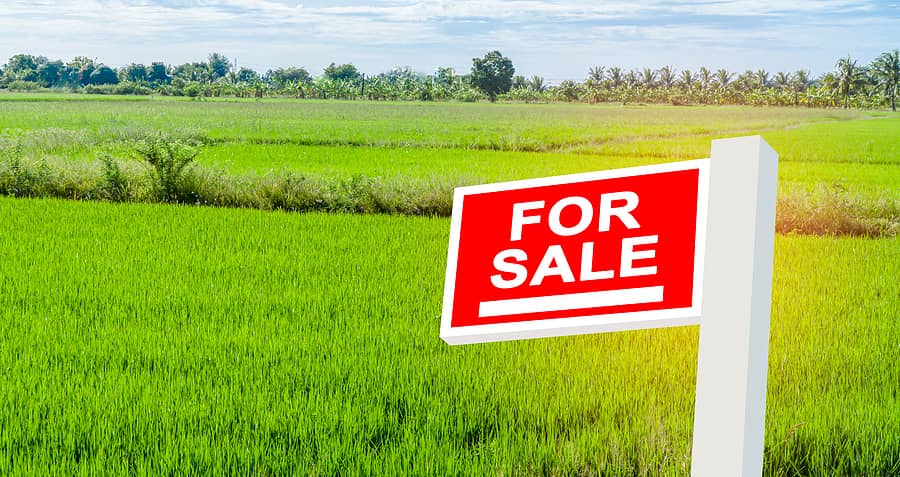Private lenders are an excellent way to buy land and develop it in Ontario. They offer streamlined, flexible finance options that rely on equity rather than credit scores. Private loans have a quicker turnaround time.
These loans appeal to people with credit scores under 600 and who are considered risky by conventional standards. They have the option of buying land through an alternative lender. These lenders use different criteria like shorter loan terms but they have higher interest rates.
How Can Private Loans Facilitate Land Purchases?
Ontario has different types of land that lend themselves to private loans.
- As the name suggests, raw land is a property that’s never been developed. It doesn’t have utilities like water and power, and no structures exist. This type of land is privately owned, and there usually isn’t any road access.
- Vacant land can be partially or fully serviced, and it might have some services like septic , water and even power.
- The provincial government owns crown land. This type of land has different conditions and restrictions, and Ontario’s Crown Land Disposition Policy will review any applications for buying it.
There are a number of different options for private loans to get involved with buying and developing land. Private mortgages can come into play if you’re thinking about a second mortgage on an existing property to purchase some land. Private loans are available in other types as well. One of the significant advantages is they can be processed in a matter of days, whereas traditional loans can take several weeks to approve.
Second mortgages are an excellent way to buy a second property or consolidate bills. If you’re going through a private lender, you’ll need over 25% of your equity built up in a current property. That’s different from A&B tier lenders, who require a debt-to-income ratio (DTI) below 43 percent.
Private lenders will filter an application for land purchase through a Loan-to-Value (LTV) ratio that doesn’t exceed 65 percent in major cities. It’s also important to remember that private lenders generally offer shorter loan periods and higher interest rates in exchange for a more streamlined process.
What Are The Considerations For Lending on Undeveloped Land?
Of course, if you’re an investor looking to buy some land, you’ll need to consider the requirements for different types. Undeveloped land is also called raw land because there are no artificial improvements. That means no sewer hookups, electricity facilities, resources or buildings.
There are several advantages including the fact that undeveloped or raw land is generally less expensive than real estate with an infrastructure and structures. Different zoning laws will apply, and people looking to build a house will need to adhere to restrictions involving parking and the height of any building on the land.
Generally, the financial product used to buy property without a house is called a land loan. These require a down payment like a conventional mortgage. Here are some of the criteria that need to be looked at.
- The down payments can also be very significant because there are many types of land to purchase. The Canadian Real Estate Magazine reports that that number can be as low as 20 to 30% in developed areas and as high as 50% for more rural properties.
- The type of land is another consideration private lenders and others consider. Once again, the cost is different whether the land is in town or rural because both need to be appraised. Some estimates have the in-town cost around $350, while the rural appraisal includes travel time and can cost as much as $550. For undeveloped land, the down payment can be 50% of the appraised value.
Gauging the risk is different for these loans.
Are There Different Risk Assessments for Land Development Loans?
There are several risks that you’ll need to take a look at when you’re considering private financing for land development loans.
The Ontario government requires specific regulatory requirements for the purchase, including assessing the environmental condition of a site. There’s a cleanup and redevelopment process that an investor will need to go through with certain sites that are either contaminated or underutilized and known as brownfield sites.
Other considerations include risk assessments based on the following:
The Capital Market Risk
Borrowers who plan on developing or building on the land need to consider a possible change in interest rates that can affect these costs. The purchasing power of your target market if you’re trying to sell the property can also be affected.
Other Requirements
Zoning regulations should be considered. Some categories include mixed-use, agricultural, industrial, residential, and commercial. Developers and private lenders must be aware of any restrictions and/or limitations. Contacting local municipalities during the process is the best bet.
Developers need to be aware of their Loan-to-Value ratio (LTV) so they can maximize their equity.
How Do Terms and Rates for Land Loans Compare to Other Types of Loans?
As you might have already expected, buying land compared to a more conventional mortgage has different terms and rates.
The nature of the collateral and the perceived risk by lenders make up these differences.
Shorter Terms
Land loans have shorter terms than other types of mortgages and loans. It’s important to remember that there’s a higher risk for both private and conventional lenders here. Generally, both lenders see properties further away from urban locations as more significant risks.
Higher Interest Rates
There are higher interest rates with this type of loan as opposed to a residential mortgage. When there’s no additional collateral, the lender’s risk increases. If you’re considering buying land, it’s good to remember that existing services like septic, phone, power and natural gas and water make these properties more attractive so that the rates will be lower.
Are You Looking for Private Lending for Land Purchase/Development?
Mortgage Broker Store focuses on numerous mortgage-related products. One of our priorities is mortgages that don’t meet traditional lending institution requirements. Our team includes private lenders, brokers, and authorized mortgage agents. Let us help you prepare for and get a product that meets your requirements.
Email ron@mortgagebrokerstore.com or call 416-499-2122.



